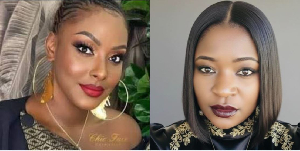The IOC Athlete Career Programme (ACP) is crossing the Atlantic to hold workshops over the next two months in Panama, Costa Rica, Honduras, Nicaragua, Guatemala and Peru, following successful stops in Rwanda, Ivory Coast and Cameroon last week.
Targeted at local athletes, these outreach sessions provide support and practical advice to educate and empower them to start planning early for life after sports.
Many athletes dedicate the bulk of their time to training – sometimes at the expense of their education or employment. So what happens when the time comes to retire from their sporting career? What comes next? All athletes, at some point, are faced with these questions. And this is where the IOC ACP can help.
Supporting athletes, be it in the sports arena or beyond, is central to the International Olympic Committee’s objectives. This was further emphasised in the adoption last December of Olympic Agenda 2020, the IOC’s strategic roadmap for the future of the Olympic Movement.
The IOC ACP, delivered in collaboration with Adecco, serves specifically to support athletes while they prepare for and go through their career transition. From balancing dual careers to preparing for post-sport careers, the ACP provides resources and training for athletes to develop life-skills and maximise their education and employment opportunities.
Throughout March and in the lead-up to the IOC ACP Forum in May in Lima, Peru, a delegation including IOC Athletes’ Commission Chair Claudia Bokel and member Pedro Yang are on the road to share their knowledge and experience with fellow athletes and trainers based in Africa, and Central and South America.
Life on the ACP road
During the 9th International African Sports Convention in Kigali, Rwanda, around 30 athletes took part in a two-day ACP seminar. Organised jointly with the Rwandan NOC, the seminar was attended by IOC Executive Board member Claudia Bokel and Amadou Dia Ba, Chairman of the Athletes’ Commission of the Association of National Olympic Committees of Africa (ANOC), and ANOCA Commission member Kady Tounkara. Outreach sessions also took place in Cameroon and the Ivory Coast.
Cameroon’s national taekwondo team captain, Nyamsik Valery, said, “After attending the workshop carried out here in Cameroon, it really changed my way of seeing and analysing issues in life. Thank you very much for sharing with us vital aspects of our lives.”
As part of the ACP, a workshop entitled “Life after Sport” was also held in Caracas, Venezuela. Opened by Venezuelan NOC President Eduardo Álvarez and world karate champion Antonio Díaz, this workshop was then hosted by Mauricio Rivas, a fencer and psychologist who is manager of the programme for Latin America.
He shared his experiences with the athletes present, who were also able to take part in educational workshops aiming to raise their awareness of and prepare them for a professional career after their competitive sports career.
Díaz, stressing how important it is for athletes to have a plan for life after sports, said: “You always feel a bit of anxiety when thinking about retirement and what to do after leaving the sporting life.” Still active as an athlete, he added: “I am sure that this programme is helpful for those who, like me, are in this stage of our careers.”
Over the next two months, Olympian Pedro Yang will join the ACP outreach sessions tour in Panama, Costa Rica, Honduras, Nicaragua, Guatemala and Peru. Launched in 2005, the programme, with its pillars “education, life skills and employment,” has already benefited over 22,000 elite athletes across the world.
Infos Sports of Monday, 30 March 2015
Source: olympic.org













